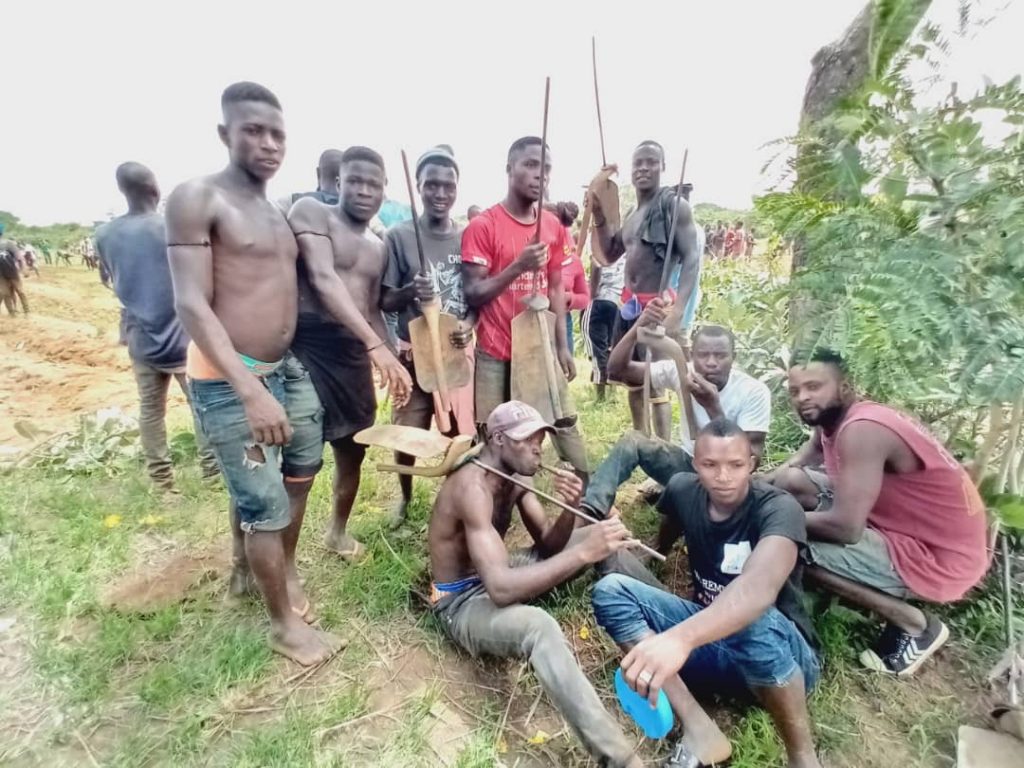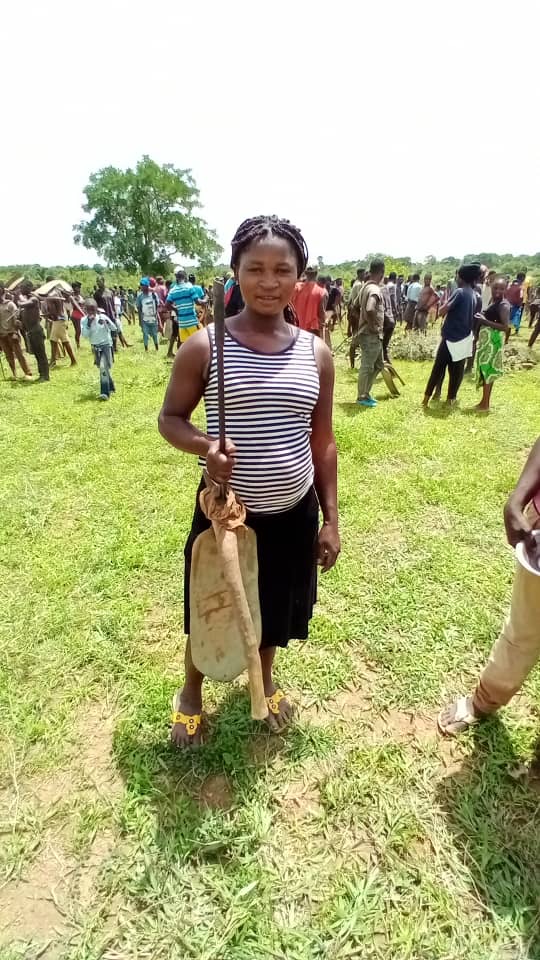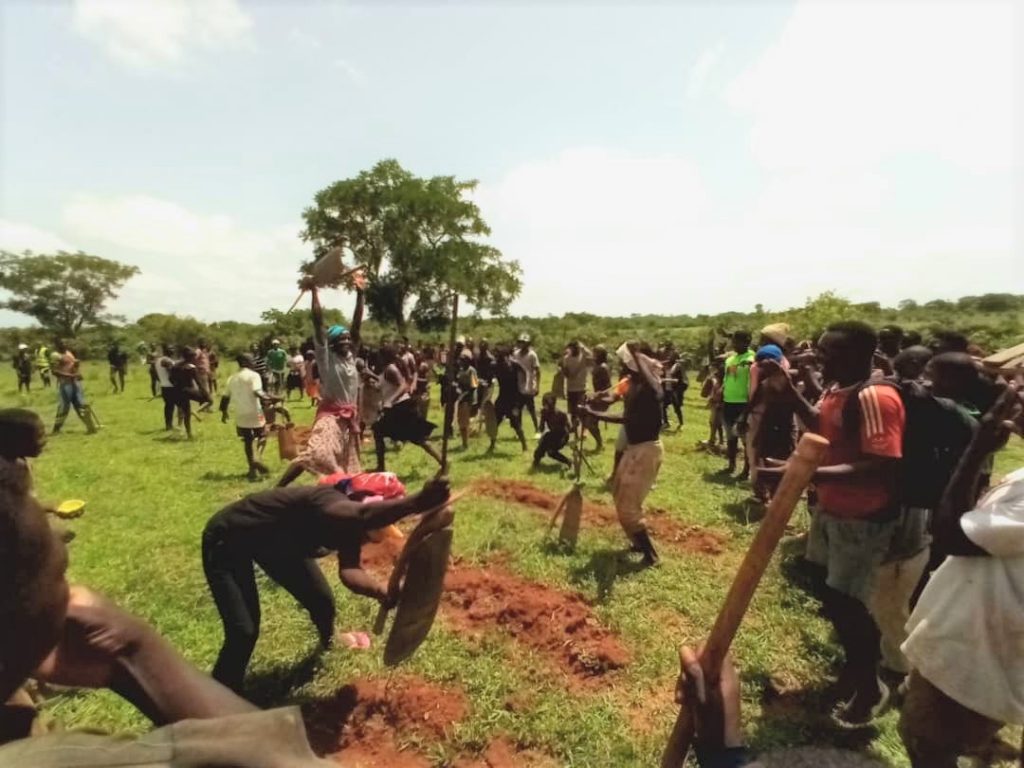
Nigeria’s northern state of Plateau increasingly has become a battleground between Muslim Fulani herders and the largely Christian farmers from numerous ethnic groups who are trying to eke out a living on its sun-swept Savannah woodlands. The Trump administration has been taking notice of the plight of Christians in Africa's largest country.
For the first time, farmers are returning en masse to 175 acres of land that Fulani’s militants seized three years ago through midnight massacres and torching hundreds of houses. This time, the farmers sought safety in their numbers. The new experiment is for thousands of farmers to hand-plow the rich soil collectively – armed and ready.
Shotgun-carrying vigilantes are standing nearby to defend against attack. Shouting as if at a friendly football match, nearly 3,000 young adults competed at plowing the rows the fastest –despite COVID-19 risks.
Meanwhile some 25 Fulani tribesmen watched the match from a nearby hilltop. The farmers expect that they will face massed attacks in coming months by Fulani’s armed with AK 47 assault rifles, but they are taking the risk.
“Fulani attacked our community in 2017. Ten people were killed; all our houses were burned down as well as two schools and three churches - Anglican, Evangelical Church Winning All and Catholic Church,” said Mr. Monday Yah a 38-year-old farmer from Rostu village, “We could not farm since 2017. Our community farmed more than 125 hectares of land before the attack, but we had to leave it all. Today we were able to plow and plant 70 [175 acres] hectares with maize, beans, and millet,” said Yah.

20-year-old Lami Audu was among the competitors at the collective plowing event where each participant used a traditional tool with a wooden handle and an 18-inch blade called a “big hoe.”
“Our community is facing three pandemics simultaneously: CoVid-19, terror attacks and hunger, ” Audu said to CDMedia.
Since ethnic cleansing attacks against farmers escalated from 2015, more than a million hectares of farmland nationwide has been taken over by grazing tribes, according to Obadiah Mailafia, an Oxford-trained economist in Jos and 2019 Presidential candidate of African Democratic Congress. With 2.7 million Nigerians trapped in Individual Displacement Camps, farmers say they are down but not out.
The Muslim Fulani are the largest nomadic ethnicity in the world, numbering up to 25 million people and spanning 11 African countries from Sudan to Senegal. West African leaders of the Fulani descent include the President of Nigeria, Muhammadu Buhari; the President of Senegal, Macky Sall; the President of Gambia, Adama Barrow; the Vice President of Sierra Leone, Mohamed Juldeh Jalloh; and the Prime Minister of Mali, Boubou Cisse. They also lead major international institutions, such as the Deputy Secretary-General of the United Nations, Amina J. Mohammed.
The farmer-herder conflict is a problem in almost all the states of West Africa but has become Nigeria’s most acute security challenge, now claiming far more lives than the Ansaru, Niger River Delta, or Boko Haram insurgencies, according to the International Crisis Group. “It has displaced hundreds of thousands and sharpened ethnic, regional and religious polarization.”
President Buhari’s plan is to resettle nomadic pastoralists in designated grazing reserves all over Nigeria. Governor Abdullahi Umar Ganduje of Kano has welcomed the pastoralists to settle in two selected forests in his northern state but has sounded the alarm about unwelcome migration of Fulani herders from across the border in Niger and Chad.
The governor on June 6 called on the Federal government to ban herdsmen from the West African countries from coming into the country and blamed the Fulani for incessant farmers- and herder clashes. “The Economic Community of West African States protocols should be reviewed so that the herdsmen are not being allowed into Nigeria so that we reduce the level of conflicts,” he told Nigerian media.

“They (Fulani herdsmen) move with arms and ammunition, so we appeal to the government to prevent them from coming into the country,” Ganduje said.
The escalating attacks by Fulani militias and occasional reprisals by farmers have drawn the concern of two U.S. Senators from Iowa, Charles Grassley, and Joni Ernst, both of whom have appealed in May to President Donald Trump to appoint a Special Envoy to the Lake Chad region.
Left unchecked, the continuing massacres in Nigeria will result in Islamization of the whole country and possibly all of West Africa, according to Stephen Enada, founder of the International Committee on Nigeria, a supporter of the letter campaign.
Sen. Grassley’s letter to Secretary Pompeo and Ambassador Brownback urged them to act against the ever-increasing violence in Nigeria. In the letter, Grassley explains, “2020 attacks against Christians in Nigeria are gaining increased international attention…Alongside this persistent threat from Boko Haram, growing land-use conflicts in Nigeria’s Middle Belt between largely Muslim Fulani and Christian farmers have exacerbated existing ethnic and religious conflicts.”
“If these killings continue and spread widely, there will be food crisis in Nigeria, because most of the foods are produced from the Middle Belt. The middle Belt is the food basket of Nigeria, and if attacks continue, 70 percent Nigerians, will be affected with famine,” Mailafia said to CDMedia.
“The Fulani attacks are designed to displace farmers from lands with good fertile soil. They are not at random but focused in areas that Fulani want for settlement, which the government is supporting,” Mailafia said.
Subscribe to our evening newsletter to stay informed during these challenging times!!